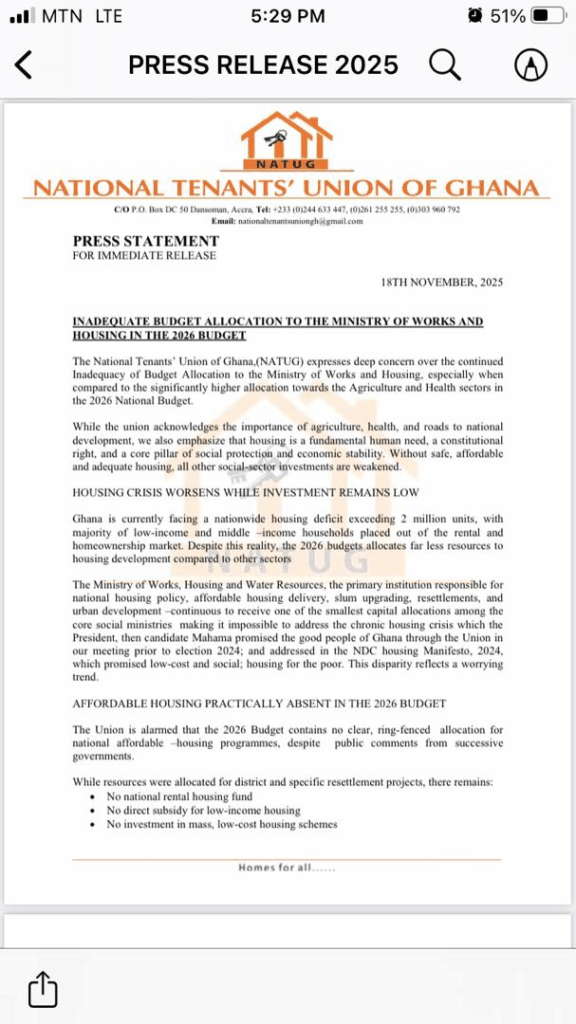The National Tenants’ Union of Ghana (NATUG) has raised concerns over what it describes as the continued marginalisation of the housing sector in the 2026 national budget.
The union argues that the government’s allocation to the Ministry of Works, Housing and Water Resources remains disproportionately low compared to the Agriculture and Health sectors, despite Ghana’s deepening housing crisis.
In a statement, NATUG acknowledged the national importance of agriculture, health, and roads but insisted that housing must be treated with equal urgency. They stressed that housing is not only a basic human need but also a constitutional right and a key pillar of social protection.
Ghana’s housing deficit, currently estimated at more than two million units, continues to widen, leaving low- and middle-income households priced out of both the rental and homeownership markets. NATUG says this makes the low allocation to the housing ministry particularly troubling.
According to the union, the Housing Ministry receives one of the smallest capital allocations among social-sector ministries. This, they argue, undermines the government’s ability to tackle the long-standing housing challenges that President Mahama pledged to address during his engagement with NATUG ahead of the 2024 elections.
The NDC’s 2024 housing manifesto promised aggressive investment in low-cost and social housing, but NATUG says the 2026 budget fails to reflect that commitment.
The union warns that unless the housing sector receives meaningful investment, the country’s wider social and economic goals will remain undermined.
“Without safe, affordable, and adequate housing, all other social-sector investments are weakened,” the statement said.
NATUG is expected to engage Parliament’s Select Committee on Works and Housing as deliberations on the budget continue.




